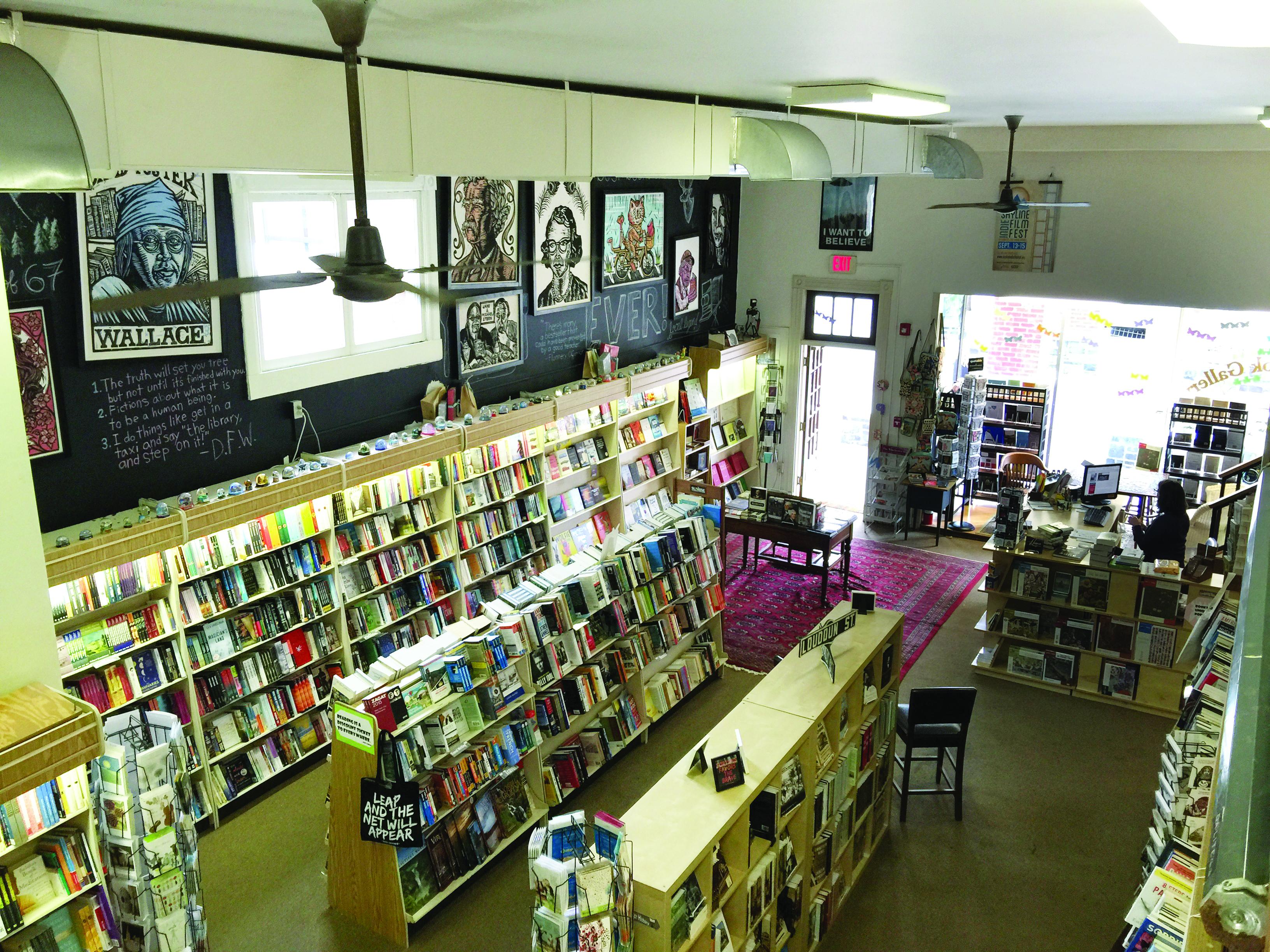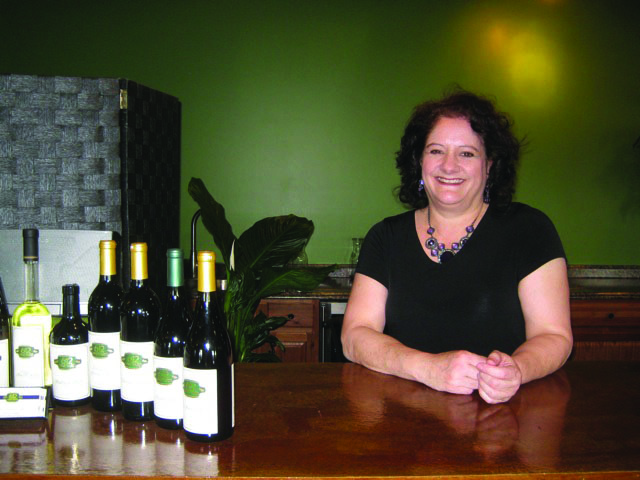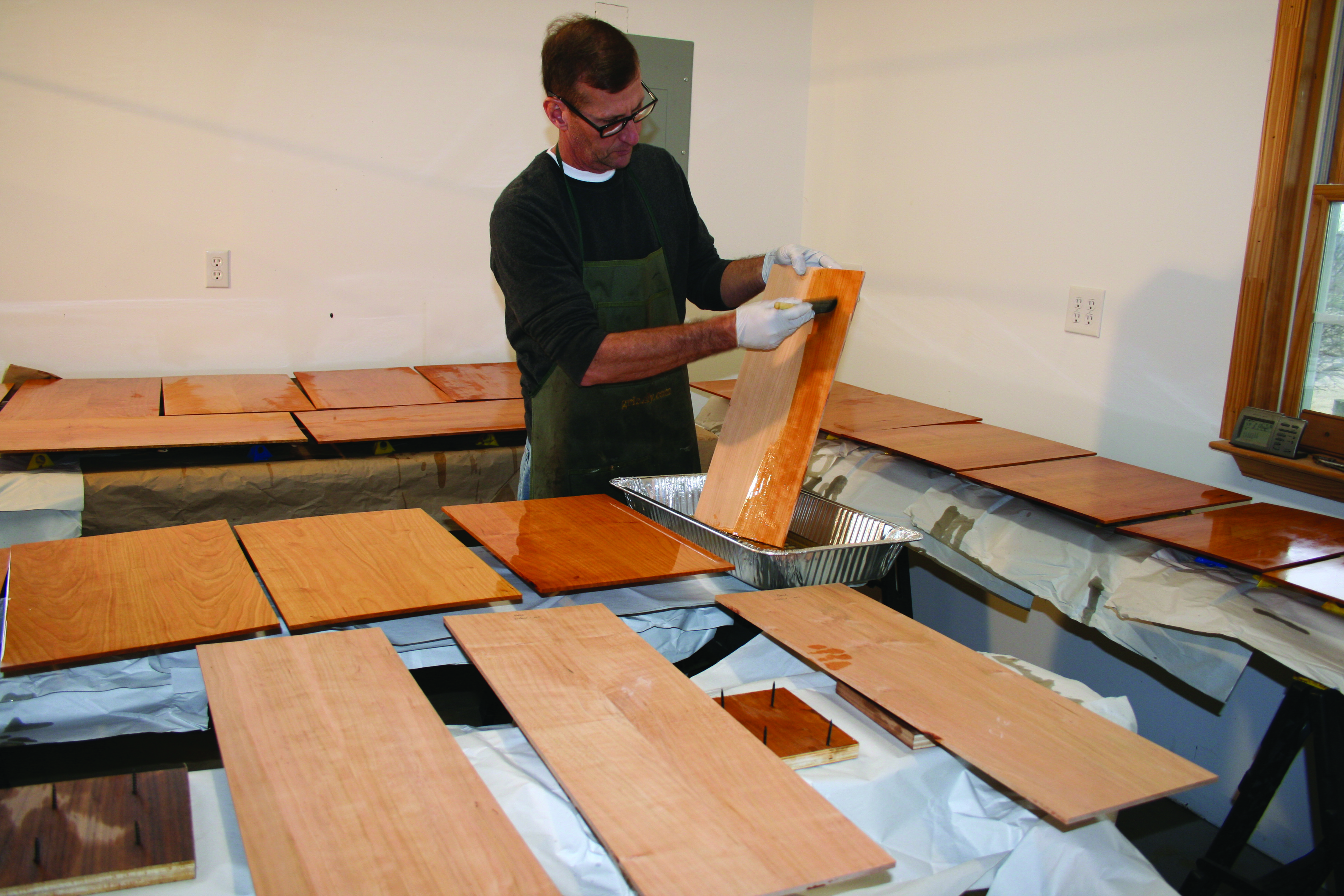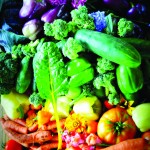Enjoying The Bounty Of Clarke County Grown And Handcrafted Buying Local And Shopping Small
By Victoria Kidd
“Buy local” is a term often used to voice advocacy for supporting local agricultural operations. Its business complement is “shop small,” a term used primarily when talking about supporting small, locally owned businesses. Americans are increasingly making the support of local businesses and the purchase of locally grown food part of their shopping routines, and more Clarke County businesses are responding to the demand. The decision to buy from local growers, makers, and producers is one with implications great and small.
Let’s consider a tale of two Saturday morning shoppers. We’ll call these local gatherers Libby and Amy. Each needs to pick up a few things to make a home-cooked family meal. Libby heads to the grocery store. Amy heads to a local farm market.
Libby enters the store and grabs a shopping cart. Her first stop is the produce section, which was recently renovated to include faux wooden finishes and other components that are designed to inspire the feel of a regional farm market. While the atmosphere may feel like a local farm market, the store’s offerings are anything but local. It offers her strawberries grown in Mexico, apples from South America, and other items imported from half a world away. Periodically, a hidden machine rumbles to life and sprays a mist over everything. Today, as Libby reaches in to collect mushrooms packaged over a week ago, the machine sprays her. Water splashes over her hand and the first few inches of her jacket. “Great,” she says, turning to find something to clean it off with.
At that same moment, in a farm market a mile away, Amy is asking a local grower for suggestions on how to prepare the eggplant she is buying from him—she’s planned a special meal tonight. He gives her a few tips, then says, “I’ll email you a terrific recipe from my wife—actually, I’ll text her in case you need ingredients from the market.”
Her shoulder bag—a giveaway from a recent small business Saturday event—already brims with the morning’s finds. A delightfully fragrant candle (the product of a local business) sits weightily in the bottom of the bag. A small sack of deep-red radishes, two cucumbers, and various other items that will create a fresh salad nestle beside it. Carefully laid across the top is a fresh-baked loaf of rosemary bread accompanied by locally produced cheese.
Before returning home, she stops at another locally owned business from which she has started purchasing meats and dairy products. She gets pork from pastured pigs, and picks up eggs from chickens that have the distinction of being known as “heritage breeds.” Throughout her day, she will interact with the local people who invest their lives in the production and sale of real food.
Amy is not alone in her choice to spend a weekend morning at a farmers market or locally owned business instead of the grocery store. The “buy local” and “shop small” movements are gaining momentum, and many are finding that purchasing from local providers is something that does not need to only be a part of their holiday shopping routines. It is becoming more a part of their weekly household shopping routines.
The Virginia Food System Council, an organization working to strengthen regional and local food systems while supporting the producers at the start of the system, has a pledge program that encourages Virginians to commit to spending just $10 a week on foods grown locally, by Virginia famers. It’s a seemingly small amount, but the collective value of doing so could mean big things for the buy local movement. According to the organization’s website, if every household in the state committed to doing so, it would bring $1.65 billion dollars into the Virginia economy each year. (You can take the pledge and learn more about them at http://virginiafoodsystemcouncil.org.)
Aside from the economic reasons to support local producers, the organization notes that eating locally grow food that is in season reduces one’s carbon footprint, supports good farming practices, and could impact one’s overall health if you specifically seek foods grown with limited chemical interventions. But it’s more than that. “Honestly, you should eat local food not just because it tastes better and is healthier, but because knowing your farmers and food producers is good for your soul,” says VFSC. “Because knowing where your food comes from helps you understand your connection to your community, your bioregion, your Earth.”
If you find that buying locally grown food is good for your soul, you may consider the soul-sweetening benefits of shopping small too. There is some contention regarding who started the shop small movement, but ironically it took the gigantic American Express credit card company to put millions behind a nationwide marketing campaign. The company has been advocating for what it calls “Small Business Saturdays” since 2010, when it launched the campaign to steal consumer’s focus away from big box retailers during the holiday shopping season. Clearly American Express sees the economic potential of small-scale vendors.
According to American Express, through efforts to support small retailers who accept the company’s credit card, upwards of $5.5 billion was spent on Black Friday in 2012 alone. Since the success of that year, the company has expanded its efforts to connect businesses with consumers on every Saturday, every day really, by offering signage, promotional materials, and other support for programs to capture attention and garner sales.
Having a powerhouse like American Express promoting small businesses, and VFSC advocating support for local food producers, helps. But the most genuine voices are those of the farmers, makers, small business owners, and crafters who work to share something grown, made, or produced with pride.
Clarke County has a lot to offer. There are plenty of options when it comes to filling your fridge with locally made consumable goods.
Let’s return to our two hypothetical shoppers. Libby and Amy will both arrive home with everything they need. One will have had an efficient outing; she’ll prepare that which was produced at a scale that some would also call efficient.
The other’s outing did take longer—by choice. Her purchases, from providers like the ones at the Clarke County Farm Market, will impact sales for locally owned businesses. She’ll prepare food that is seasonal, incredibly fresh, and with every bite she’ll make a note to herself to next week tell her farmers how good it was.
The next time you need to make a purchase, think about where you’ll shop and where your dollar goes. It’s been said that to live in Clarke County is to love Clarke County. Perhaps there is no better way to prove that affinity than to buy local and shop small.
See the accompanying guide, page 14, for a listing of some of our favorite local shops, markets, wineries, and more.
















